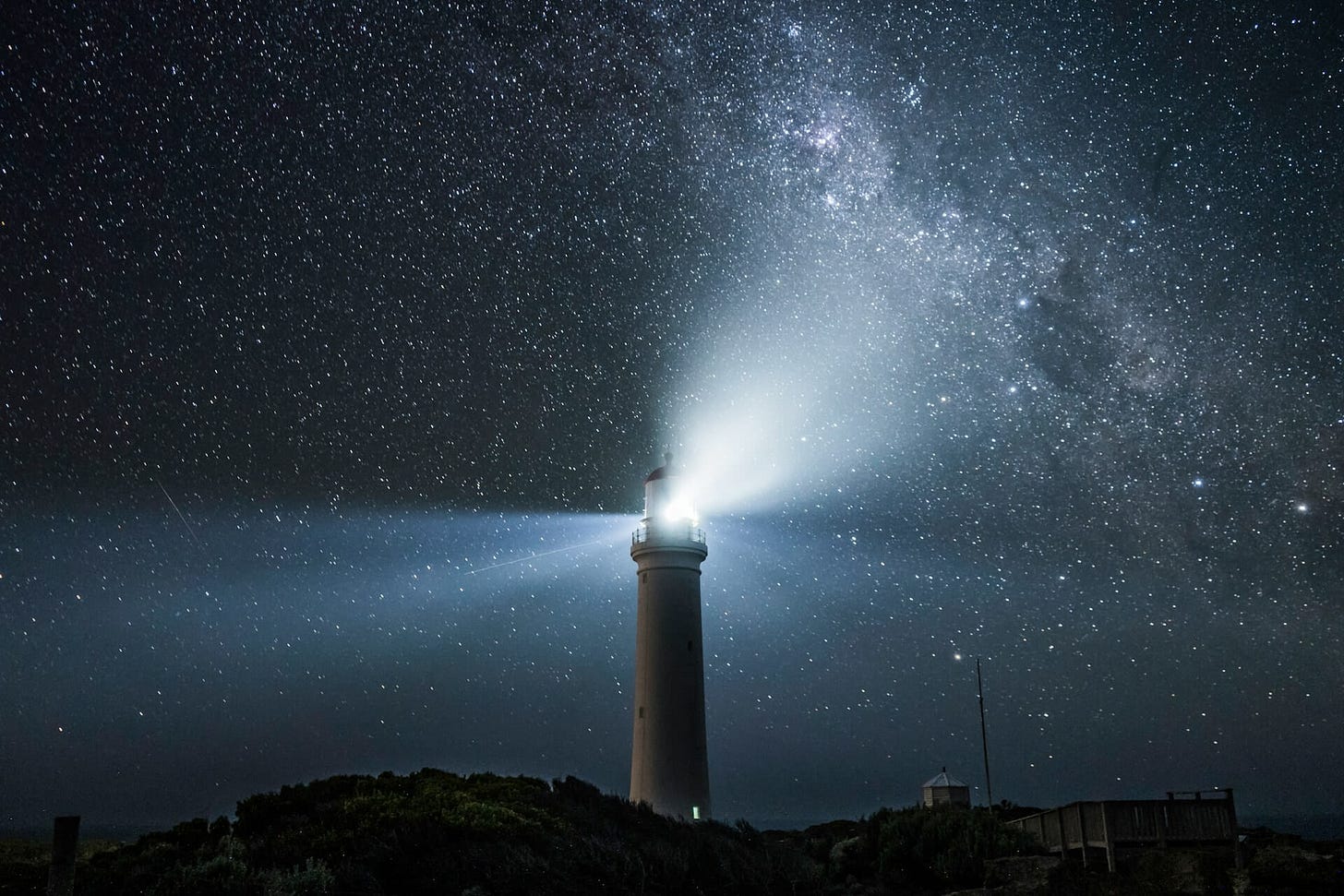The Book That Changed My Career
1 Lesson From Navy SEALs
There's a famous story that never actually happened:
In 1983, the USS Ranger, a huge American aircraft carrier, was conducting operations near the Philippines. Late one night, Captain John Paul Reason got word that another ship was coming fast, straight toward them.
Standard procedure: order the ship to divert.
The Ranger sent a message: "We advise you to change your course immediately."
The reply: "Negative. You change your course."
Confused and irritated, the captain doubled down: "This is a U.S. Navy warship. Alter your course now."
The response: "We can't. We're a lighthouse."
This story captures something we all do but rarely admit:
We demand others to adapt, thinking we're driving powerful ships.. But sometimes, the thing that won't move isn't being stubborn. It's just reality.
This is the heart of "Extreme Ownership," the book by Navy SEALs Jocko Willink and Leif Babin. It's not about being tough. It's about owning responsibility.
Even when—especially when—it hurts.
Here's what happens: When things go wrong, our first instinct is to find who's at fault. It's almost automatic.
Someone missed a deadline.
Someone gave bad instructions.
Someone didn't communicate clearly.
But there's a problem with this approach. It doesn't actually solve anything.
Willink discovered something counterintuitive:
The most effective leaders weren't the ones who were best at assigning blame. They were the ones who were fastest to take it.
This seems backward. Why would you take responsibility for things that aren't your fault?
Because of what happens next.
When you own the problem, you get to own the solution. When you blame others, you're stuck waiting for them to fix it.
There's another benefit that's less obvious but more powerful: People trust leaders who take responsibility for things going wrong. It signals that you're more interested in fixing problems than protecting your reputation.
This creates a strange dynamic.
The more blame you're willing to absorb, the less blame actually comes your way.
The more responsibility you take for failures, the more credit you get for successes.
It's like compound interest, but for trust.
So leadership isn't about pointing finger… it's about pointing at yourself first.
That's something we all know but easily forget.
After all, we're often ships convinced the lighthouse should move.
Want more lessons from Extreme Ownership?
👉 Read: Your Freedom Requires Sacrifice




Disclaimer: The warship story is a popular leadership tale shared widely over the years, but it's not real.
It teaches important lessons about perspective and assumptions, but the USS Ranger never actually had an incident with a lighthouse.
The best leadership book EVER.
My preferred principle is the "There are no bad teams, just bad leaders." This is a punch in the face. The hard pill to swallow.
You are responsible for everything your team delivers. From behaviors to outcomes. And it's hard to be humble and see how we (in)directly contribute to it.